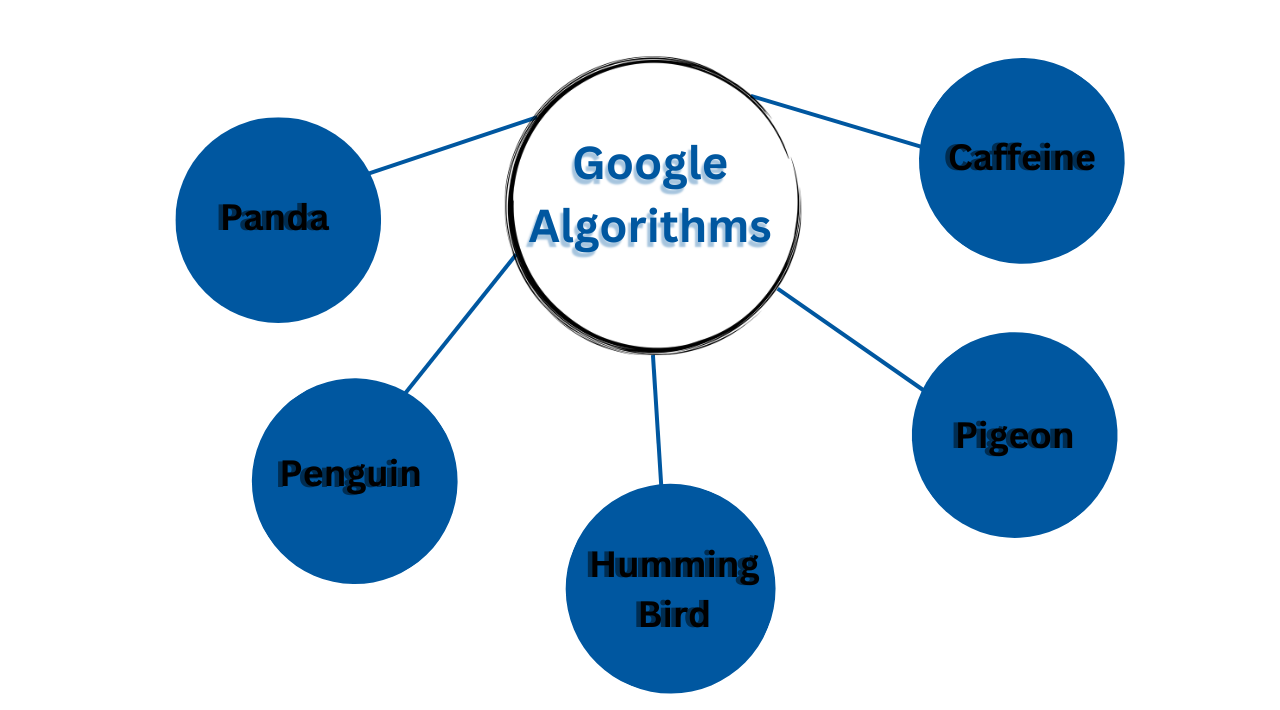

Google algorithms are fundamental to digital marketing strategies. They determine how websites rank in search results, impacting both traffic and conversions. Keeping abreast of these algorithms is essential for businesses aiming to thrive online. Adapting to changes in these systems can boost visibility and performance.

Benefits of Learning Digital Marketing:
Google's algorithms assess web pages for three things. They check their relevance to search queries, content quality, and user experience. These factors affect a page's search result ranking. They influence its visibility to potential visitors.
Key Google Algorithms:
- Panda Algorithm: It targets and punishes sites with thin, low-value content. It also targets duplicate content. It can confuse search engines by showing the same info many times. It also seeks to remove spam. Users should find only high-quality, relevant content in their search results.
- Penguin Algorithm: Focuses on identifying and eliminating spammy links and deceptive practices. It aims to reduce the number of websites in SERPs by using black hat SEO techniques. These tactics often use complex link schemes. They aim to skew search results in favor of certain sites. The goal is to create a fairer, more reliable search experience for users. To do this, we will target these unethical strategies.
- Hummingbird Algorithm: Enhances semantic search and natural language processing. This advance makes search results more relevant. It understands the meaning of users' queries.
- Pigeon Algorithm: The initiative aimed to considerably enhance local search results. It emphasized the critical role of both location and distance in search queries. This approach led to better results for those seeking nearby businesses. Users saw a big improvement in finding local, suitable places.
- Caffeine Algorithm: Google's search engine tweaks aim to improve speed and accuracy. They want to deliver faster, more precise results to users.
How Google Algorithms Impact Digital Marketing:
- SEO: Optimize content for search engines.
- Content Marketing: Create high-quality, engaging content.
- Link Building: Focus on relevance and authority.
- Technical SEO: Ensure website crawlability and speed.
Google Algorithm Updates:
- Google Core Update: Targets quality and relevance.
- Google's Mobile-Friendly Update: It emphasizes how well websites perform on mobile devices. engaging content.
- Google Page Experience Update: Focuses on user experience.
Tips to Leverage Google Algorithms:
-
Keyword Research: Understand search intent.
-
High-Quality Content: Engage audiences.
-
Technical SEO: Optimize website performance.
-
Local SEO: Target local searches.
-
Analytics: Check performance.
Future of Google Algorithms:
-
Artificial Intelligence: AI-powered search.
-
Voice Search: Optimizing for voice.
-
Machine Learning: adaptive algorithms.
Conclusion :
Google algorithms are key to the success of digital marketing. Staying updated on algorithm changes is essential for success. To stay competitive, adapt your marketing strategy on a regular basis. This will maximize your online reach. Marketers can use these algorithms to engage their target audience. They can then tailor their campaigns to achieve the desired results.Contact us at contact@lifeboat.co.in for more information.
Tips to Leverage Google Algorithms:
- Keyword Research: Understand search intent.
- High-Quality Content: Engage audiences.
- Technical SEO: Optimize website performance.
- Local SEO: Target local searches.
- Analytics: Check performance.
Future of Google Algorithms:
- Artificial Intelligence: AI-powered search.
- Voice Search: Optimizing for voice.
- Machine Learning: adaptive algorithms.
Conclusion :
Google algorithms are key to the success of digital marketing. Staying updated on algorithm changes is essential for success. To stay competitive, adapt your marketing strategy on a regular basis. This will maximize your online reach. Marketers can use these algorithms to engage their target audience. They can then tailor their campaigns to achieve the desired results.Contact us at contact@lifeboat.co.in for more information.


